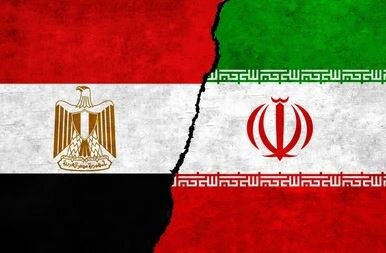High-level meeting in Cairo signals more cordiality in Egypt-Iran relations

A high-profile meeting between a leading Egyptian academic and Iran’s new ambassador has underscored a serious and concerted push to fully normalize relations between the two regional powers.
The meeting, held in Cairo, featured Ahmed Moustafa, Director and Founder of the Asia Center for Studies & Translation, and Dr. Mojtaba Ferdousi Pour, the Iranian Ambassador to Egypt. The discussions revealed a multi-faceted effort to rebuild ties, with Ambassador Ferdousi Pour highlighting several key areas of mutual understanding and future cooperation.
A central point of alignment, as emphasized by the Ambassador, is the shared concern over the Palestinian Case and the humanitarian situation in Gaza. He stated that Iran has consistently supported Egypt on critical Arab, Islamic, and international issues, with the plight of Gaza representing a shared "moral imperative."
The diplomat extended Iran's appreciation for Egypt's recent role as a mediator, specifically citing its successful facilitation between Iran and the International Atomic Energy Agency (IAEA). This, he noted, is a testament to Egypt's "balanced and constructive diplomacy."
Further gratitude was expressed for Egypt’s supportive stances within the United Nations General Assembly and at the recent 19th Summit of the Non-Aligned Movement (NAM) in Kampala, signaling an alignment on championing sovereignty and multilateralism.
Crucially, Ambassador Ferdousi Pour provided context for his mission, revealing that his appointment represents a "substantial upgrade in relations." Unlike his predecessor, he arrived in Cairo with the full title of Ambassador, a move he described as a "clear and intentional" signal from both capitals to pursue full normalization.
"The ultimate objective is the timely resumption of normal diplomatic relations between the Arab Republic of Egypt and the Islamic Republic of Iran," the Ambassador stated. Given that Egypt and Iran are the two most populous and historically influential nations in the region, such a reconciliation has the potential to reshape West Asia’s geopolitical landscape.
The envoy also offered a crucial clarification regarding the absence of the Iranian President from a recent Ceasefire Agreement signing in Sharm El-Sheikh. He explained the decision was a direct response to the "disappointing and double-standard stance of Western powers," particularly following an illegal war against Iran and continued threats of the UN Snapback mechanism.
Looking ahead, the Ambassador outlined a vast array of multilateral frameworks for potential cooperation, including the D-8, the Organization of Islamic Cooperation (OIC), BRICS, and the Shanghai Cooperation Organization (SCO).
Leave a Comment